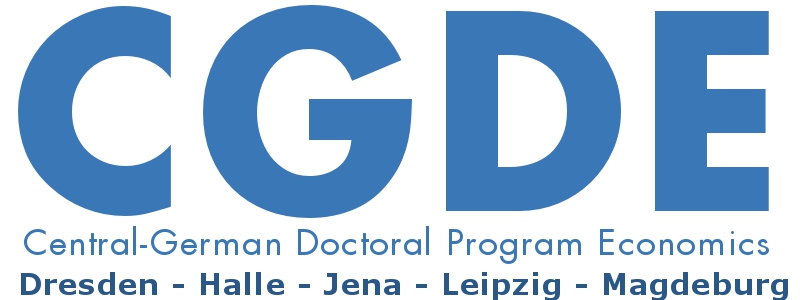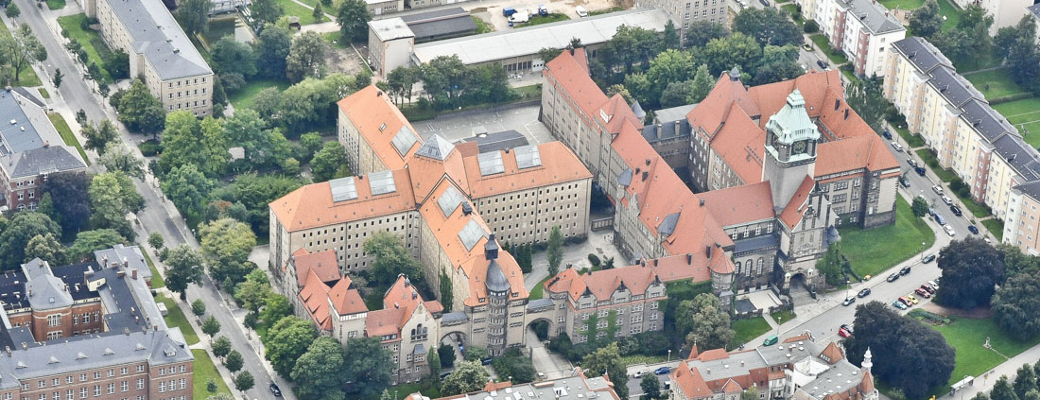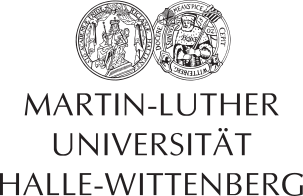Frontiers Macroeconomics
Lecturer: Professor Christian Bayer (University of Bonn)
Date: June 3-4, 2020 and July 6-7, 2020
Registration: until April 1, 2020 via e-mail: sprenger@wifa.uni-leipzig.de
Announcement: pdf
Schedule
Wednesday, June 3
9:15 am – 10:30 am (75 minutes)
30 minutes break
11:00 am – 12:15 am (75 minutes)
105 minutes break
2:00 pm – 4:00 pm (120 minutes)
Thursday, June 4
9:15 am – 10:30 am (75 minutes)
30 minutes break
11:00 am – 12:15 am (75 minutes)
105 minutes break
2:00 pm – 4:00 pm (120 minutes)
Monday, July 6
9:15 am – 10:30 am (75 minutes)
30 minutes break
11:00 am – 12:15 am (75 minutes)
105 minutes break
2:00 pm – 4:00 pm (120 minutes)
Tuesday, July 7
9:15 am – 10:30 am (75 minutes)
30 minutes break
11:00 am – 12:15 am (75 minutes)
105 minutes break 2:00 pm – 4:00 pm (120 minutes)
Topics Covered
• How do borrowing constraints change monetary policy transmission?
From RANK to TANK to HANK.
• Idiosyncratic income risk and wealth distributions in aggregate models.
• Solving heterogeneous agent models by perturbation methods.
• Portfolio re-balancing and fiscal-monetary interactions
Preliminary course schedule
| June 3 | June 4 | July 6 | July 7 | |
|
Session
1: Theory (75 min) |
Hand-to-mouth consumers: Saver-spender models of monetary policy |
Idiosyncratic risk and endogenous wealth distribution (Bewley, Huggett, Aiyagari) |
Setting up a first, simple HANK model and channels of monetary transmission |
Portfolio rebalancing, liquidity provision and monetary-fiscal interactions in HANK models |
|
Session 2: Tools (75 min) | Reminder: Linearized DSGE Models as solutions to nonlinear difference equations |
Endogenous grid methods to solve dynamic decision problems |
Finding stationary distributions of wealth and income |
Linearizing a heterogeneous agent model |
|
Session 3: Techniques (Coding, 120 min) |
Setting up our baseline aggregate model |
Simulating a Bewley economy |
Solving an Aiyagari economy |
Solving your first HANK model |
Biographical Information
Since 2008, Christian Bayer is full professor of economics at the University of Bonn, where he also is director of the institute for macroeconomics and econo- metrics and serves as the spokesperson of the DFG-sponsored research training group “The macroeconomics of inequality”. Furthermore, he is a research fellow at CEPR, IZA, and CESifo.
Christian obtained his doctoral degree from Dortmund University in 2004 and between then and coming to Bonn worked at to the European University Institute in Florence, Yale University, and Università Bocconi in Milan.
His main research interest is the role of heterogeneity in macroeconomics. In particular, he is interested in the macroeconomic implications of financial frictions and uncertainty on investment, firm dynamics, and household savings decisions. All these topics require a serious treatment of how heterogeneity of households and firms evolves in the macroeconomy. His research has been twice sponsored by prestigious ERC grants and has been published in the lead- ing peer-reviewed journals of economics, e.g. the American Economic Review, Econometrica, and the Journal of Monetary Economics.
Website: www.wiwi.uni-bonn.de/bayer/
Relevant publications
“Precautionary Savings, Illiquid Assets, and the Aggregate Consequences of Shocks to Household Income Risk,” (jointly with Ralph Luetticke, Lien Pham-Dao and Volker Tjaden), Econometrica, 2019, vol. 87(1), 255-290.
“Investment Dispersion and the Business Cycle” (with R. Bachmann), American Economic Review, 2014, vol. 104(4), 1392–1416.
“’Wait-and-See’ Business Cycles?” (with R. Bachmann), Journal of Monetary Economics, 2013, vol. 60(6), 704-719.
“Solving heterogeneous agent models in discrete time with many idiosyn- cratic states by perturbation methods” (jointly with R. Luetticke), CEPR Discussion Paper 13071.
“Shocks, Frictions, and Inequality in US Business Cycles” (jointly with B. Born and R. Luetticke), mimeo.























